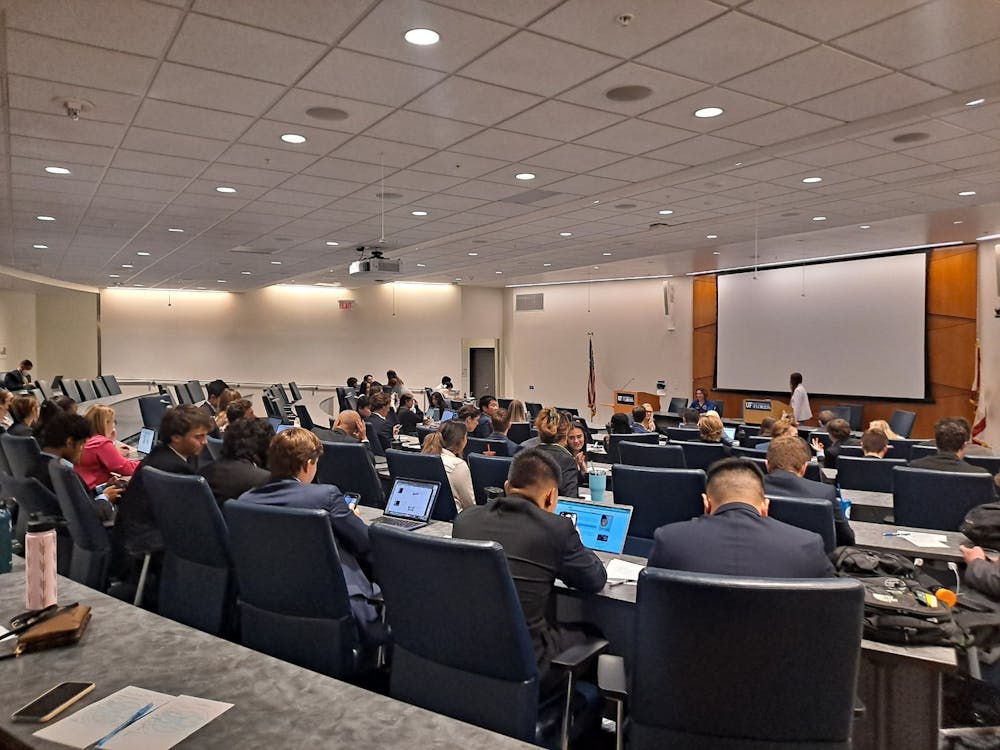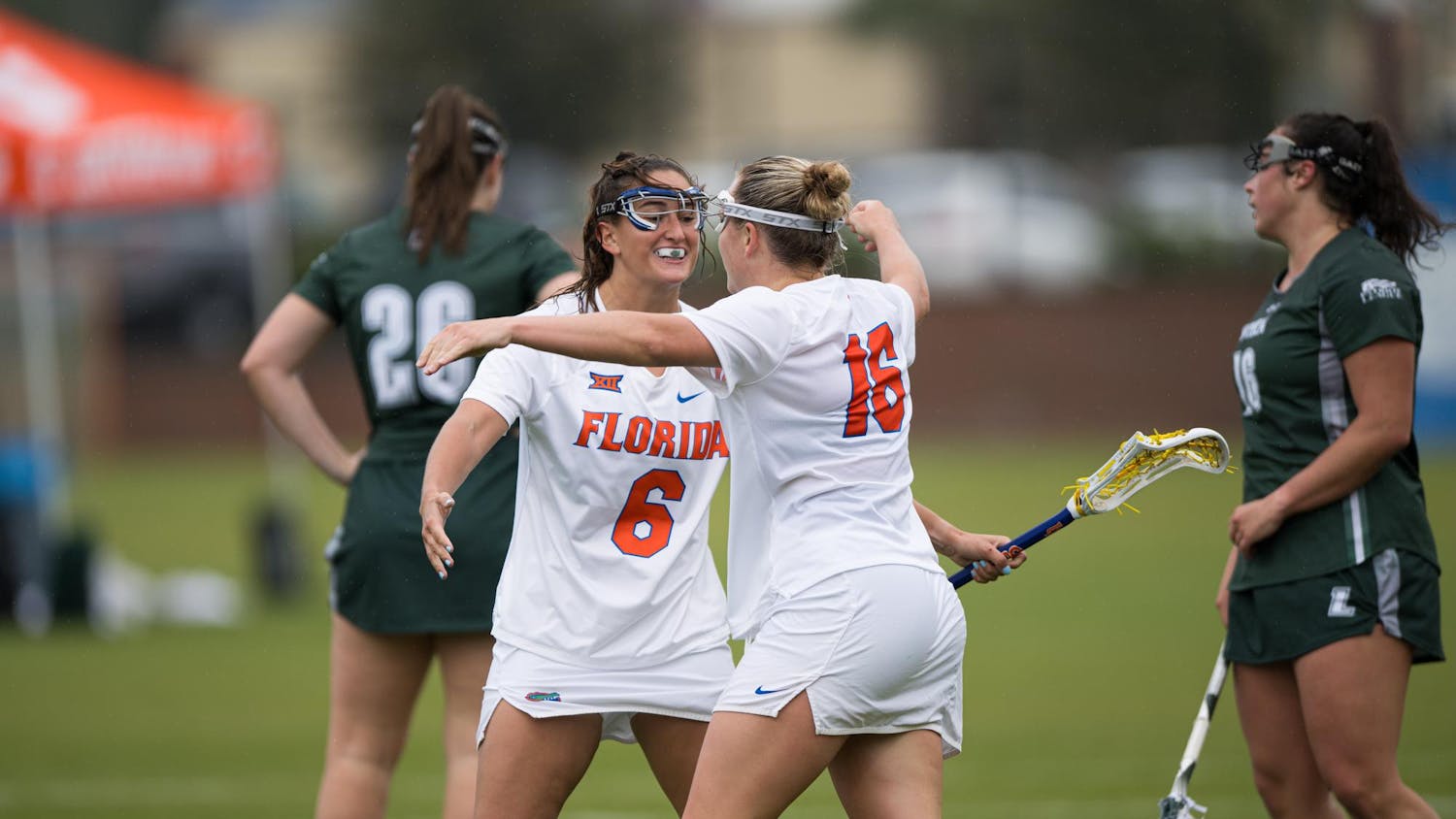With the strike of a gavel, the Sept. 27 UF Senate meeting was adjourned after about 15 minutes. The Reitz Auditorium erupted in cheers from more than 100 UF students, who attended in protest of the bill that could reduce club funding.
UF students are still advocating for their organizations in an ongoing conflict with the university and Student Government after the Senate vote on a bill that allocates funds was pushed back.
After recent organization classification changes over summer from the university, SG set out to revise allocated funding codes for organizations. The revisions, which may cause funding decreases for various organizations, were originally scheduled to be voted on at the Sept. 27 Student Senate meeting.
Leading up to the Senate meeting, 60 representatives of student organizations registered to speak on the bill during the public forum.
However, the Senate didn’t meet quorum, with only 26 senators attending. Despite low attendance from senators, more than one hundred students showed up to express support for student organizations. Some students believe quorum wasn’t met because of the high attendance rate from students. The Senate will now vote on the bill at the next meeting Oct. 11.
Organization representatives left the meeting in high hopes because they now have more time to fight for funding.
David Delgado, a 20-year-old aerospace engineering junior, is the president of the UF Liquid Propulsion Development Team, an organization potentially impacted by the bill’s revisions. Delgado has been fighting for the future of his team the past week and was happy with the outcome of the previous Senate meeting.
“We heard earlier in the day that [the Senate] had received so many public comments that senators were saying ‘I’m not going to show up,’” Delgado said. “So, we felt like that was a pretty strong win.”
Effective July 1, student organizations are now classified as either General Registered Student Organizations or University Sponsored Student Organizations, according to UF Student Activities and Involvement. Along with this change in classification, there could be changes to the amount of funds and resources certain organizations receive.
Senators will read the bill for a second time at the Oct. 11 Senate meeting. The bill is meant to revise SG codes to match UF Student Activities and Involvement regulations, which state GRSOs can receive funding from SG but no support from university departments. USSOs cannot request funds from SG but can use resources and funds from university departments.
Prior to the classification change, most organizations were classified as registered student organizations. Comparable to GRSOs, RSOs organizations could receive SG funding and weren’t considered university entities; however, most of these organizations still used university resources, such as using classroom space, while receiving SG money.
The updated bill language is to match with UF SAI and to match, classify and clarify all of the classifications of organizations on campus, said Budget and Appropriations Chairwoman Catherine Giordano (Gator-District A) at the Sept. 20 Senate meeting.
Gator officials didn’t respond to multiple requests from The Alligator for comment as of Sunday.
The bill is also intended to prevent organizations from using double the resources they’re allocated. If the bill is passed, critics say many student organizations will lose most of their funding and resources starting Spring 2023. This could eventually result in organizations disbanding.
Some student leaders and senators were confused about the state of their organizations from the alleged lack of transparency and communication from the university and SG. Faith Corbett, Change Party Senate caucus leader, and her party originally had no idea what the bill entailed due to a lack of communication, said Corbett.
“I think [the situation] points to a lack of transparency and a lack of communicative efforts between student government organizations, student government entities and other organizations,” Corbett said.
Marginalized organizations and smaller organizations on campus haven't been given the same information or the same insight that it seems like leading organizations have, Corbett said.
Students plan to continue to advocate for the futures of their organizations by speaking to UF officials and speaking at the next Senate meeting. The meeting will be held Oct. 11 at 6:30 p.m. in the Reitz Union in the Senate Chamber.
Contact Claire at cgrunewald@alligator.org. Follow her on Twitter @grunewaldclaire.

Claire Grunewald is a fourth-year journalism major and the Spring 2024 Editor In Chief of The Alligator. In her free time, she likes to go to concerts and attempt to meet her Goodreads reading goal.






